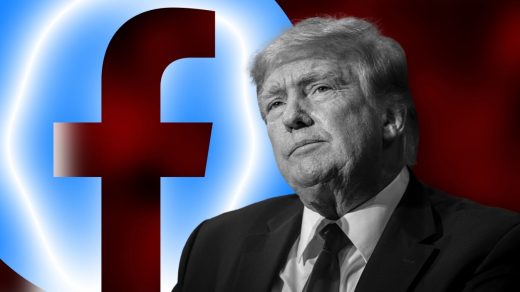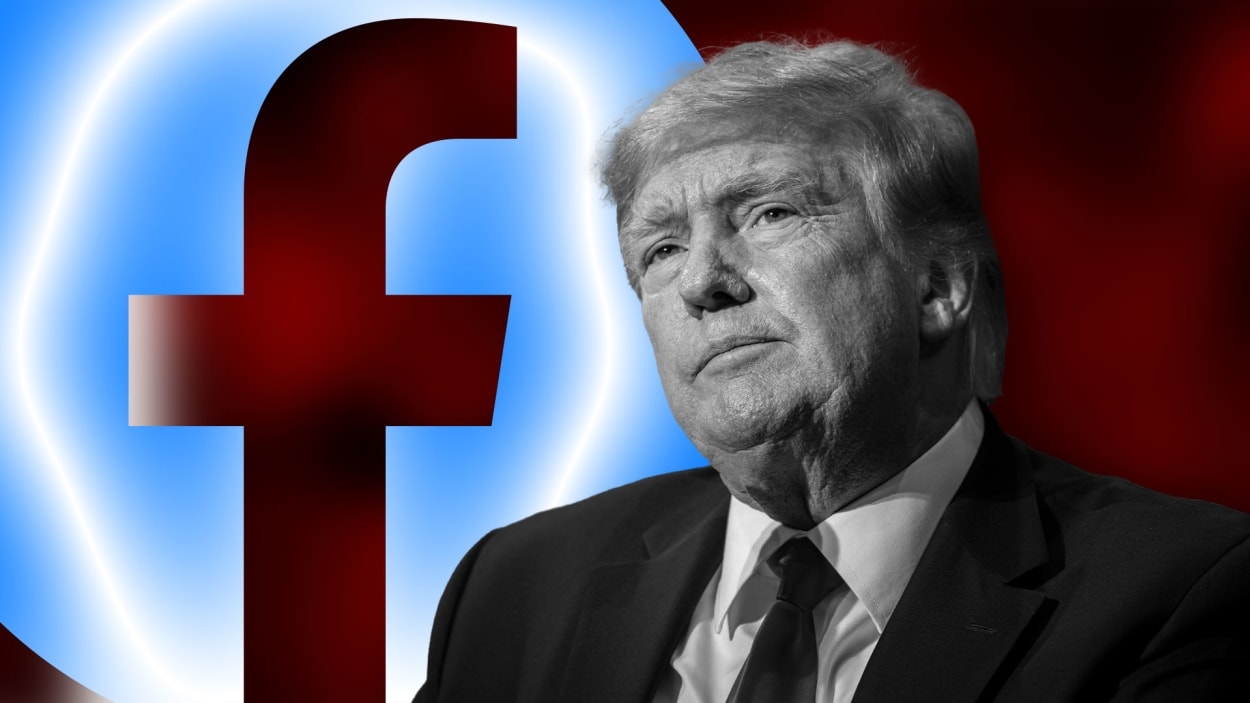Meta would be making a mistake handing Trump back the keys to Facebook
By Nicole Gill and Angelo Carusone
It’s been nearly two years since Donald Trump incited a violent insurrection against the U.S. government, organized largely on social media. But while the January 6 Select House Committee is referring the former president to the Department of Justice for criminal investigation, Meta is considering handing him back the keys to his Facebook account.
As the leaders of two tech and media watchdog groups, we’ve closely tracked Trump’s online behavior since he incited that deadly insurrection, and we can unequivocally say: There is no justification for allowing Trump back on Facebook.
Here’s why.
First, Trump’s behavior online has only gotten more incendiary and dangerous. In the wake of Facebook’s 2021 decision, Trump launched a platform of his own, Truth Social, and his conduct there offers a preview of the dangerous content he would flood Facebook with if allowed to return.
Researchers at Accountable Tech analyzed over 2,000 of Trump’s Truth Social posts, and what they found is disturbing. More than 350 of Trump’s posts on the platform between April and October 2022—the equivalent of two posts per day—would likely violate Facebook’s Community Standards and warrant removal. Among his posts were 116 “Truths” amplifying or promoting followers and sympathizers of QAnon—the violent, anti-Semitic conspiracy movement banned on Facebook since 2020 as a “militarized social movement” that is linked to real-world violence and insurrection.
Trump has also shown no signs of backing down from his election lies. He shared 239 posts during the same months, April to October, that contained election-related disinformation currently prohibited by Facebook—including spreading baseless falsehoods about mail-in ballots, voting machines, and multiple, disproven claims that the 2020 election was “rigged” or “stolen.”
And new research from Media Matters for America found that nearly half of Trump’s posts and reposts on Truth Social (48%) in the week after the 2022 midterms pushed claims of election fraud (30 times), such as false claims about mail-in ballots and voting machines, and amplified QAnon accounts or content (65 times).
Second, Trump’s dangerous online rhetoric doesn’t stay online. Seven people died as a result of Trump’s attempted coup on January 6, and in the years since, terroristic threats aimed at election administrators, law enforcement officers, and public officials have surged. The Justice Department was forced to set up a special task force to protect election officials after more than 1,000 were directly threatened over their unwillingness to declare Trump the winner of the 2020 election. Several members of Congress have had to upgrade their security over death threats.
When Trump posts, extremists listen.
Unfortunately, these extremists’ lust for political violence is only increasing. Many Trump supporters are openly advocating for civil war, particularly after the FBI executed a search warrant at Mar-a-Lago this summer. And Rep. Marjorie Taylor Greene recently told a group of young Republicans that “if Steve Bannon and I had organized [the January 6 insurrection], we would have won. Not to mention, it would’ve been armed.”
Finally, social media platforms play a powerful role in the mainstreaming of hate and lies. Before Elon Musk took over Twitter, for example, seditious, pro-Trump factions of the country were largely relegated to the darker corners of the internet like Truth Social, 4chan, and private chat groups. But since Musk’s takeover, extremists on Twitter have been emboldened, hate speech has skyrocketed, and advertisers have fled. It’s a story we see time and time again: Trump-fueled lies and conspiracy theories become more dangerous when amplified and normalized by mainstream platforms.
Facebook has admitted as much. That’s why, after Facebook’s Oversight Board assessed the platform’s ban, the company outlined that his reinstatement would depend on one critical metric: the risk to public safety. As Nick Clegg, Meta’s president of global affairs, noted about the end of the two-year ban: “If we determine that there is still a serious risk to public safety, we will extend the restriction for a set period of time and continue to reevaluate until that risk has receded.” Clegg underscored that sentiment in September.
If we take Facebook at its word, there is only one way forward. Donald Trump has incited real-world violence, eroded trust in our elections and institutions, and helped usher in a period of heightened civil unrest and national division. He poses an ongoing and serious risk to public safety, and must be treated as such.
When Meta suspended Trump following the January 6 insurrection, Mark Zuckerberg said the risks of allowing Trump to remain on the platform were “simply too great.” He was right. Free speech doesn’t guarantee the privilege of a Facebook log-in—especially for someone who tried to overthrow the U.S. government. Consequences matter. It’s time for Facebook to follow through on its word, protect the interests of American democracy and public safety, and keep Trump off Facebook.
Nicole Gill is the founder of Accountable Tech. Angelo Carusone is the president of Media Matters for America.
(17)



